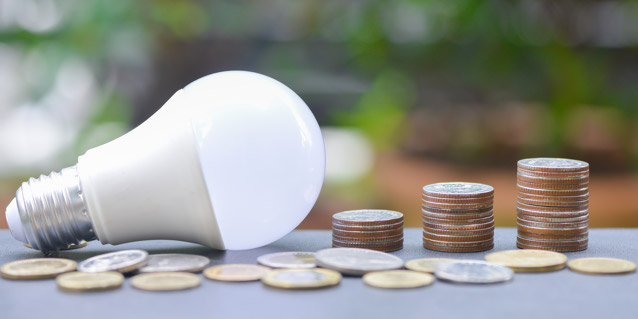EMA License: 9/21140 | Open 9am - 6pm | Monday to Saturday | Call 84193988

How Much Money Can You Save by Turning Off the Lights?
It might take a while to remember to turn off all of your lights when you leave the house. Or maybe you have a child or a roommate who just always forgets to turn off their light. But when it comes to saving money and energy, there’s a lot to be gained from remembering to form this simple habit.
According to recent studies, you could be saving a decent amount of money on your monthly energy bill by turning off the lights when they aren’t in use. By understanding how you can positively impact your wallet and the environment, you can start to develop a good habit of turning off the lights at any time.
How Turning Off Lights Can Save Money
First, let’s take a look at how much it costs when you leave your lights on for an extended period of time. Sometimes, you may be leaving your lights on without even realizing it, and that is costing you money out of your pocket with each new run of your energy bill.
According to CATS, a company that provides light installation Singapore, using a basic incandescent light bulb as an example, we can determine how much it really does cost to have the lights on every hour. A 60W bulb uses about .06 kWh of electricity each hour, priced at $0.011 US cents. So after 1000 hours - which adds up faster than you may think - you will spend over $6 US dollars on that one single light.
Of course, halogen and LED lights can make the cost even higher when you leave them on for too long. You have to take the type of lighting into consideration as well; if you have non-incandescent bulbs, you’re looking to pay an even higher price for leaving them on for so long. Incandescent and halogen light bulbs are the least energy-efficient bulbs on the market, so these are the ones you’ll want to turn off first.
Try getting into the habit of turning off the lights whenever you leave the room. Not only is leaving the lights on detrimental for your bills, but it also hurts the environment.
Habitual Impacts on the Environment
It’s a waste of energy to leave the lights on when you don’t need them. All of that electricity is being generated just to power light bulbs that you don’t really need. This can cause an impact on the environment, which ends up using up a lot of precious resources that cost time and materials to make.
Saving energy can give the environment the break it desperately needs. You can learn to manage your available energy more efficiently, and in the meantime you can cut some dollars off of your monthly electricity bill.
Not to mention, you are putting yourself in a good habitual mindset. It only takes a few weeks to fully form new habits, and this is a great one to take on. You can train yourself to get up and turn off your lights whenever you’re about to leave the room. And when you leave your home for the day, you shouldn’t have any lights on at all. It’s okay to leave emergency lights and front door lights on, but you should try to minimize the use of lights as much as possible.
Did you know that it’s cheaper to use electricity at night than it is during the day? Plus, since you don’t need lights during the day as much, this presents a great opportunity to practice forming that new habit.
Here are a few other tips you can employ to help yourself get in the energy-saving mindset:
- Turn off your incandescent and halogen light bulbs as often as possible. These are the least energy-efficient types of lights that can really hurt your energy bill.
- Always turn off LEDs when you leave the room. This won’t affect the lifespan of the LED, and you’ll save money in the long run.
- Make a note to yourself to turn off your lights when you leave. No lights need to be turned on in an empty room.
By understanding how turning lights off can save your bill and the environment, you can learn to form a new habit little by little. It never hurts to spare a few dollars on your monthly bill!